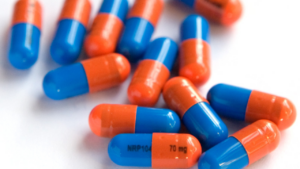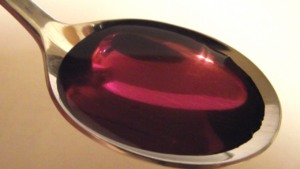Flakka, also known as “Gravel,” is a synthetic drug similar to bath salts. It is usually sold as white crystal chunks that have the appearance of aquarium gravel, hence the street name. Flakka gives a high that is similar to cocaine, but can be much more dangerous due to the ease with which someone can overdose. If you or a loved one is struggling with an addiction to flakka, the best chance for a healthy recovery is by getting addiction treatment from a trusted rehab facility.
At The Bluffs in Sherrodsville, we offer a wide variety of addiction therapy programs that are specialized for various kinds of substance use disorders. Our welcoming facility provides a safe environment for patients who are struggling with addiction and recovery. Our programs and services can be catered to suit each individual’s unique needs and circumstances. If you are ready to take the first step on your recovery journey, contact us at 850.374.5331 to learn more about how we can help.
What Is Flakka?
Flakka is a drug that contains a chemical that is similar to MDPV, the key ingredient in bath salts. People can snort, inject, smoke, or vape this drug. Similar to cocaine, once ingested, flakka enables a flooding of dopamine and serotonin in the brain. Flakka is much cheaper as well, earning it the nickname “5$ Insanity” since that much of the drug is said to be equivalent to $80 of cocaine.
Experts believe that flakka is ten times more potent than cocaine. It also sits in a person’s brain for longer, resulting in longer-lasting effects, some of which may be permanent. Due to flakka’s potency, an overdose can occur by taking anything over 0.1 grams of the drug. The symptoms of a flakka overdose to watch out for are:
- Elevated body temperature resulting in profuse sweating or removing clothes
- Fearlessness, the inability to feel pain, and inhuman strength
- Changes in speech, disorientation, panic, and bizarre, unusual, or aggressive behavior
- Extreme paranoia and disturbing, often violent, hallucinations
Due to elevated body temperatures during a flakka overdose, the muscles in the body may break down, negatively affecting the kidneys. It is also possible that someone who survived an overdose of flakka may need to be on dialysis for the rest of their life.
What Are the Effects of Flakka?
Even with proper dosing, the effects of flakka can last for one to several hours. Like many other types of drugs, its use comes with a host of side effects, most of which are negative. Some of the symptoms of flakka abuse are:
- Euphoria, feeling invulnerable, hyperstimulation, excitement, and loss of inhibitions
- Insomnia or loss of appetite
- Increased body temperature and perspiration, which increases the risk of dehydration
- Muscle spasms, tremors, or seizures caused by muscle fibers dissolving into the bloodstream due to increased body temperature
- Respiratory issues or renal failure
- Irregular or increased heart rate and increased blood pressure, increasing the risk for heart attack or stroke
- Panic attacks, anxiety, self-mutilation, suicidal ideation, or aggressive behavior, sometimes with murderous intent
- Acute psychosis, paranoia, catatonia, confusion, delusions, or delirium
- Brain swelling or neurological damage
Flakka use changes the way a person’s mind works, resulting in withdrawal symptoms once the drug is gone from the body. Some of the common flakka withdrawal symptoms are anxiety, depression, paranoia, tremors, and issues sleeping. However, with the many risks associated with flakka addiction, detox and withdrawal is still the best course of action for the healthiest possible outcome.
Start Addiction Treatment at Vertava Health – Ohio in Sherrodsville
There is a wide variety of synthetic drugs that are on the market. Sadly, each has a host of dangerous and potentially life-threatening side effects. At The Bluffs, our specialized addiction treatment programs are designed to ensure lasting recovery and lifelong sobriety. If you or someone you love is struggling with a substance use disorder, contact us at 850.374.5331 today to start the journey toward health and wellness.







